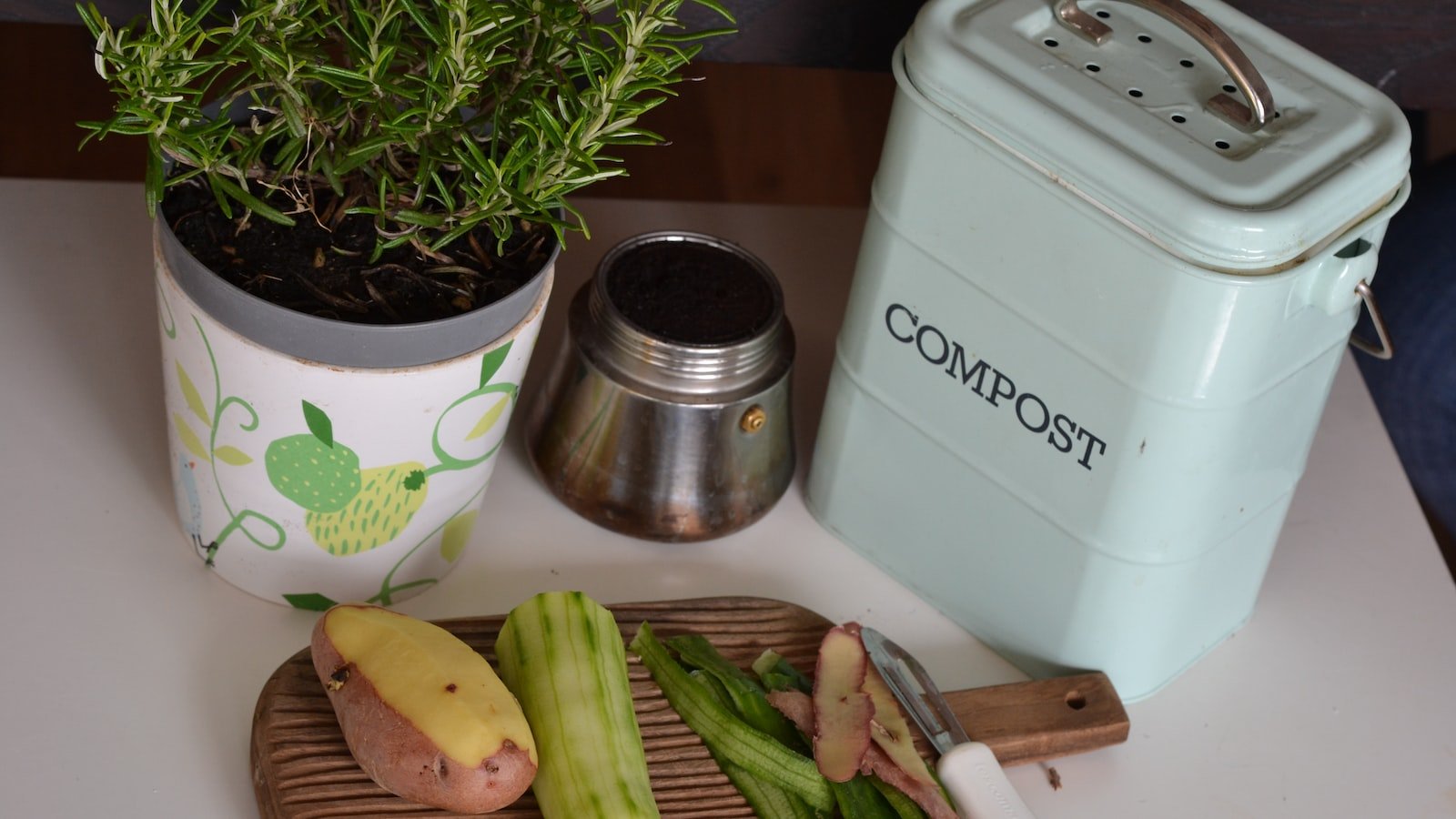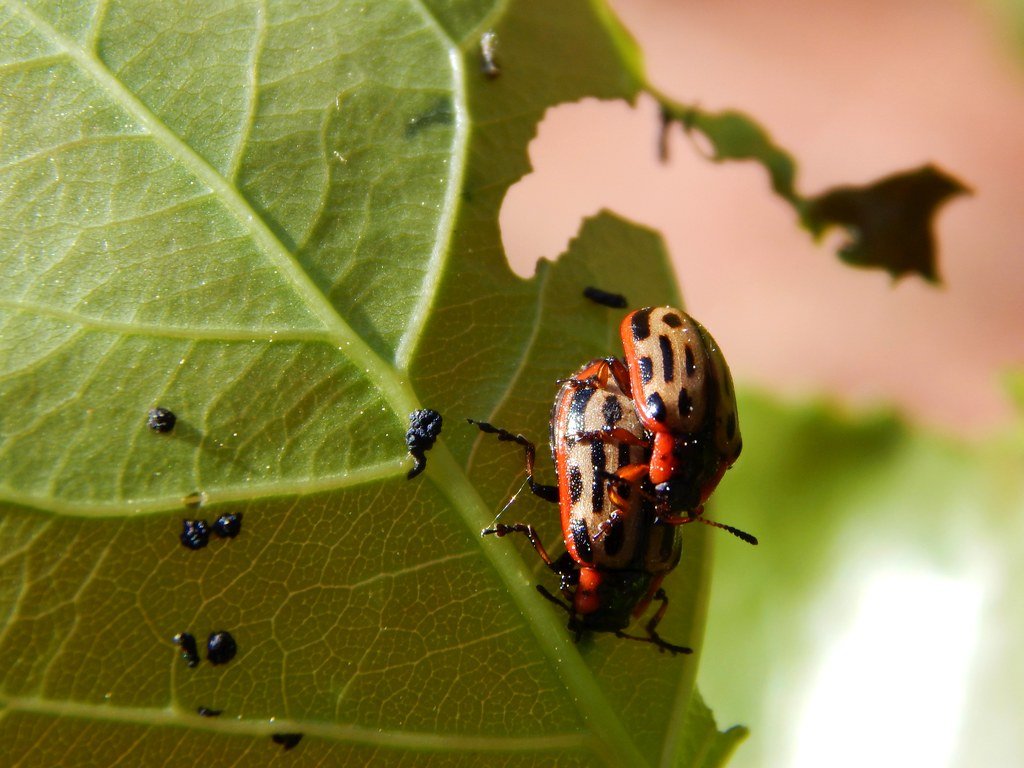As sunrays gently peek through the window, you sip your morning coffee and gaze at your thriving garden. A sense of pride and accomplishment fills your heart as you admire the vibrant blooms and luscious greenery you’ve cultivated over the years. Yet, a question niggles at the back of your mind – how can you elevate your gardening skills to new heights? Fear not, dear mom, for beneath the surface lies a powerful secret waiting to revolutionize your garden: composting. Journey with us as we embark on a mystical quest to unlock the art of composting, empowering you to nourish your plants, reduce waste, and unleash the full potential of your green kingdom. This mom’s guide to composting will enlighten even the most novice gardeners, bringing a touch of magic to your backyard oasis.
Table of Contents
- Choosing the Right Composting Method
- Essential Tools and Materials for Composting
- Creating a Healthy and Balanced Compost Pile
- Keeping Pests and Odors at Bay
- Tips for Maintaining an Effective Composting Routine
- Q&A
- To Conclude

Choosing the Right Composting Method
When it comes to composting, there isn’t a one-size-fits-all method. The right composting technique for you largely depends on your available space, time commitment, and desired outcome. Let’s explore some different approaches to composting and find the one that suits you best!
1. Traditional Backyard Composting
If you have a backyard or a spacious outdoor area, traditional composting might be an excellent choice. This method involves creating a compost pile directly on the ground using a mix of green and brown materials, including kitchen scraps, yard waste, and garden clippings. Remember to turn the pile regularly to facilitate decomposition and supply adequate moisture, and with time, you’ll have nutrient-rich compost for your plants.
2. Vermicomposting
For those with limited outdoor space, vermicomposting offers a compact and efficient alternative. Vermiculture refers to the process of using worms to decompose organic matter. Create a worm bin using a large container, add bedding such as shredded paper or coconut coir, and introduce red worms. Feed them with your kitchen scraps (remember to avoid dairy and meat products) and watch them transform it into vermicompost—a nutrient-dense fertilizer that your plants will love!
3. Bokashi Composting
If you’re searching for a method that allows you to compost all types of organic waste, including meat, dairy, and cooked food, bokashi composting might be the solution. This fermentation-based technique involves using bokashi bran and airtight containers to transform kitchen waste into compost over a few weeks. Once the fermentation process is complete, bury the fermented waste in your garden or add it to a traditional compost pile to finalize the decomposition process.
Remember, the key is to choose a composting method that aligns with your lifestyle and needs, making it easier and more enjoyable for you to reduce waste and create a sustainable environment.

Essential Tools and Materials for Composting
Composting is a fantastic way to turn your kitchen scraps and garden waste into nutrient-rich compost for your plants. To get started, you’ll need a few essential tools and materials. Here’s a handy list to help you on your composting journey:
- A Compost Bin: A compost bin is the heart of your composting system. It can be a simple DIY bin made from wood pallets or a purchased one with aeration vents.
- Garden Fork or Compost Turner: These tools are essential for turning your compost pile regularly. They help aerate the pile and speed up the decomposition process.
- Green and Brown Materials: Composting requires a balance of green (nitrogen-rich) and brown (carbon-rich) materials. Green materials include vegetable scraps, grass clippings, and coffee grounds. Brown materials include dry leaves, straw, and shredded newspaper.
- A Pitchfork or Garden Shovel: You’ll need a tool to mix the compost pile thoroughly. A pitchfork or garden shovel works well for this task.
- Compost Thermometer: Monitoring the temperature of your compost pile can help you ensure that it’s decomposing properly. A compost thermometer allows you to track the internal temperature of the pile.
- Water Sprayer: Keeping your compost pile moist is crucial for microbial activity and decomposition. A water sprayer enables you to maintain the right level of moisture.
- A Compost Sifter: Once your compost is ready, a compost sifter helps separate the finished compost from any larger chunks or uncomposted materials.
With these essential tools and materials, you’ll be well-equipped to start composting and produce nutrient-rich compost for your garden. Remember, composting is a natural process, so be patient and enjoy the journey!

Creating a Healthy and Balanced Compost Pile
Maintaining a healthy and balanced compost pile is the key to turning kitchen scraps and yard waste into nutrient-rich soil amendment. Follow these tips and tricks to ensure your compost pile thrives and produces quality compost for your garden.
1. Feed your compost with a variety of materials: Add a mixture of “greens” (nitrogen-rich materials like fruit and vegetable scraps, grass clippings, and coffee grounds) and “browns” (carbon-rich materials like dry leaves, twigs, and shredded paper). Aim for a ratio of roughly 2 parts browns to 1 part greens for optimal decomposition.
2. Keep it moist, but not too wet: Compost piles thrive in a moist environment, so ensure it stays damp but avoid overwatering. Regularly check the moisture level by squeezing a handful of compost. It should feel like a damp sponge. If it’s too dry, sprinkle some water; if too wet, mix in dry browns to absorb excess moisture.
3. Turn it, turn it, turn it: Regularly aerate your compost by turning it with a pitchfork or shovel. This helps speed up decomposition and prevents odors. Aim to turn your compost every 1-2 weeks, mixing the outer materials to the center and vice versa.
4. Watch out for critters: While compost piles attract beneficial organisms, it’s important to keep unwanted critters out. Avoid adding meat, dairy products, or oily items, as they can attract pests. Consider building a compost bin or using a compost tumbler to deter animals and control the composting process more efficiently.
By following these guidelines, you will create a healthy and balanced compost pile that transforms your organic waste into nutrient-rich humus, providing a sustainable and eco-friendly solution for your garden’s soil enrichment needs. Happy composting!
Keeping Pests and Odors at Bay
When it comes to maintaining a clean and fresh living space, it’s essential to keep pests and odors at bay. Nobody wants to deal with the inconvenience and discomfort that unwanted critters and unpleasant smells can bring. Fortunately, there are a few simple steps you can take to ensure your home remains a haven free from pests and odors.
Firstly, it’s important to keep your home clean and organized. Regularly vacuuming, sweeping, and dusting can help eliminate crumbs and debris that attract pests such as ants or cockroaches. Additionally, take the time to declutter, as piles of belongings can provide hiding places for pests to breed and multiply.
Secondly, make sure to properly store your food and dispose of garbage effectively. Seal food items in airtight containers to prevent attracting pests like rodents or pantry moths. Don’t forget to take out the trash regularly and keep garbage bins tightly covered to avoid unpleasant odors and potential pest infestations.
Furthermore, consider using natural remedies and products to deter pests and eliminate odors. Citrus peels and mint leaves placed strategically around your home can help ward off insects, while baking soda and vinegar can be used as eco-friendly deodorizers. Remember, prevention is key, so investing in screens for doors and windows can act as a barrier against unwanted pests while allowing fresh air to circulate.
By following these simple tips, you can create an environment that repels pests and odors, ensuring a comfortable and enjoyable living space for you and your loved ones.
Tips for Maintaining an Effective Composting Routine
Composting is a fantastic way to reduce waste and nourish your garden with rich, organic nutrients. To make the most of your composting routine, here are a few tips to keep in mind:
- Choose the right spot: Find a suitable location in your backyard for your compost pile or bin. It should be easily accessible yet tucked away from direct sunlight to prevent excessive drying or overheating.
- Balance the ingredients: Maintaining the right balance of carbon-rich ”browns” and nitrogen-rich “greens” is crucial for successful composting. Aim for a 2:1 ratio of brown materials like dried leaves or shredded paper to green items such as grass clippings or kitchen scraps.
- Turn it frequently: Regularly turning your compost pile aerates it, ensuring efficient decomposition and preventing the formation of unpleasant odors. Use a garden fork or compost aerator to mix the materials thoroughly.
- Keep it moist: While compost needs to breathe, it also requires some moisture to break down properly. Aim for a consistency similar to a damp sponge by occasionally watering the pile or adding moist ingredients like fruit peels or vegetable scraps.
- Be patient: Composting is a natural process that takes time. Depending on the materials used and the environmental conditions, it can take anywhere from a few months to a year for your compost to fully mature. Stay consistent and patient, and you’ll be rewarded with nutrient-rich soil amendment for your garden.
By following these tips, you’ll be well on your way to maintaining an effective composting routine and reaping the benefits of healthier plants and a more sustainable lifestyle. So roll up your sleeves, get your hands dirty, and let nature do its magic!
Q&A
What are the benefits of composting?
Composting not only reduces food waste and saves money, but it also helps create nutrient-rich soil for your garden. It’s a sustainable way to reduce your carbon footprint and promote a healthier environment.
Can I compost if I live in an apartment?
Absolutely! Even if you don’t have a backyard, you can still compost with a small indoor bin or even a worm bin. There are various composting methods suitable for apartment dwellers that can help you convert organic waste into nutrient-rich compost.
What items can I compost?
Most fruit and vegetable scraps, coffee grounds, tea leaves, and eggshells can be composted. Avoid dairy, meat, and oily foods as they can attract pests. Yard waste like leaves and grass clippings can also be composted.
Do I need a compost bin or can I just pile up the organic waste?
While you can certainly make a compost pile in your yard, using a compost bin has several advantages. It helps contain the waste, speeds up decomposition, prevents pests, and provides a neater appearance for your composting area.
How long does it take for organic waste to turn into compost?
The time required for composting depends on several factors like temperature, moisture, and the materials used. Generally, it takes about 3 to 6 months for organic waste to turn into nutrient-rich compost, but it can take longer for certain items like woody debris.
Can I compost in the winter?
Composting during winter is possible, but it may slow down the decomposition process due to the colder temperatures. Consider using insulated compost bins and avoid adding excess moisture to prevent the compost from freezing.
Are there any composting tips for busy moms?
For busy moms, maintaining a composting routine can be made easier by using a kitchen compost pail with a tight lid, chopping food waste into smaller pieces to accelerate decomposition, and turning the compost pile regularly to hasten the breakdown of materials.
What can I do with finished compost?
Finished compost can be used to enrich soil in your garden, potted plants, or even for starting seedlings. It’s a natural fertilizer that improves soil structure, promotes plant growth, and helps retain moisture.
How can I troubleshoot common composting problems?
To troubleshoot common composting problems, make sure to balance the ratio of brown (carbon-rich) and green (nitrogen-rich) materials, keep the compost moist but not too wet, turn the pile regularly to speed up decomposition, and ensure proper aeration by adding twigs or straw.
To Conclude
In the grand circle of life, there’s something magical about the humble art of composting. As we bid adieu to this guide, the whispers of decomposition continue to echo in our minds, transforming our perspective on waste and its hidden potential. The diligent efforts of a mom embarking on this composting journey can spark change, not only within her household but also in our broader environmental consciousness.
As we embark on our own composting adventures, let us marvel at the alchemy that occurs within a carefully nurtured pile of organic matter. The symphony of microorganisms performing their dance of decay, transforming kitchen scraps into dark, nutrient-rich soil, nature’s precious gift. Let us honor the power of this ancient practice, dating back to our ancestors who embraced the wisdom of returning to the earth what it has so graciously given.
With the invaluable guidance of this mom’s composting journey, we have learned the delicate balance between greens and browns, moisture and airflow, patience and perseverance. We have discovered the joys of turning kitchen scraps into a vibrant ecosystem of worms, beetles, and fungi, all working harmoniously to close the loop of life.
But, our journey doesn’t end here. Composting extends beyond the borders of our own backyards. It beckons us to examine our consumption patterns, to rethink how we handle our waste, and to question the very foundations of a throwaway culture. So, let us spread the gospel of composting far and wide, encouraging our friends, neighbors, and communities to join the transformative, regenerative movement.
As we part ways, armed with newfound knowledge and a compost bin overflowing with potential, let us remember that change starts small. It begins with a single banana peel tossed into the pile, a conscious decision to give new life to what was once considered waste. So, let us be the catalysts for change, nurturing not only our gardens but also a greener planet for generations to come.
Farewell, fellow composters, may your soil be fertile, your plants be lush, and your journey be filled with the richest of stories to tell. Until we meet again, let’s continue tending to the Earth’s belly, marveling at the profound simplicity of composting, and celebrating the transformative power it wields in our hands.
As an affiliate, my content may feature links to products I personally use and recommend. By taking action, like subscribing or making a purchase, you’ll be supporting my work and fueling my taco cravings at the same time. Win-win, right?
Want to read more? Check out our Affiliate Disclosure page.